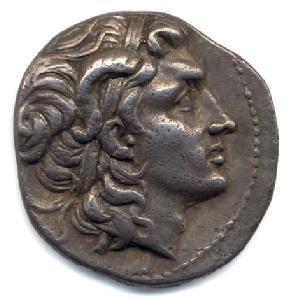Syllabus
The below syllabus is for 2022/23. The 2023/24 syllabus will have some changes, but will look quite similar.
Module Convenor: Dr Conor P. Trainor (C.Trainor@warwick.ac.uk)
Contributing Lecturers: Dr C. Trainor; Dr C. Rowan; Prof. J. Davidson; C. Orchard; C. Lualdi; Prof. S. Frey-Kupper; M. Marai; Prof. Z. Newby; Prof. D. Fearn.
Lectures and Seminars
Autumn Term 2022
Week 1 Introduction: Sources/Context & Storytelling (CT/CR)
Week 2 Alexander (CT)
Week 3 After Alexander: Settlements and Kingdoms (CT)
Week 4 Ptolemaic Egypt (CT)
Week 5 Seminar 1 – Digital Storytelling (CR – R0.41)
Week 6 Reading Week
Week 7 Seminar 2 – Digital Storytelling (CR – R0.41)
Week 8 Seleucid Asia (CT)
Week 9 Antigonid Greece (CT)
Week 10 Attalid Pergamon (CT)
Spring Term 2023
Week 1 Hellenistic Sicily (SFK)
Week 2 Hellenistic Magic (JD)
Week 3 Lecture (1hr) and Seminar 3 – Hellenistic Coinage (CO – FAB 1.11)
Week 4 Hellenistic Religion (CT)
Week 5 Lecture (1hr) and Seminar 4 – Hellenistic Warfare and Fake Images (CL – FAB 1.11)
Week 6 Reading Week
Week 7 Hellenistic Art (ZN)
Week 8 Hellenistic Science (MM)
Week 9 From Epic to Epigram (DF)
Week 10 Hellenistic Kingship (CT)
Summer Term 2023
Week 1 The Hellenistic World Review (CT)
Week 2 Exam Preparation (CT)
Aims
- To provide a survey of the history, the cultural context and key remains of the Hellenistic world.
- To build a solid chronological, geographical, and conceptual framework for understanding the Hellenistic world.
- To introduce students to the range of ancient source material and scholarly opinions on the Hellenistic world.
- To foster critical thinking and analysis of a variety of types of source material.
Learning Outcomes
- Upon completion of the module, students will be able to:
- Demonstrate an understanding of the chronology, geography and institutional structures of the Hellenistic world.
- Demonstrate skills in the evaluation of primary source material and secondary literature.
- Individually, and as a member of a team, research, analyse and contextualise relevant information and evidence from primary and secondary sources in the form of a structured argument.

